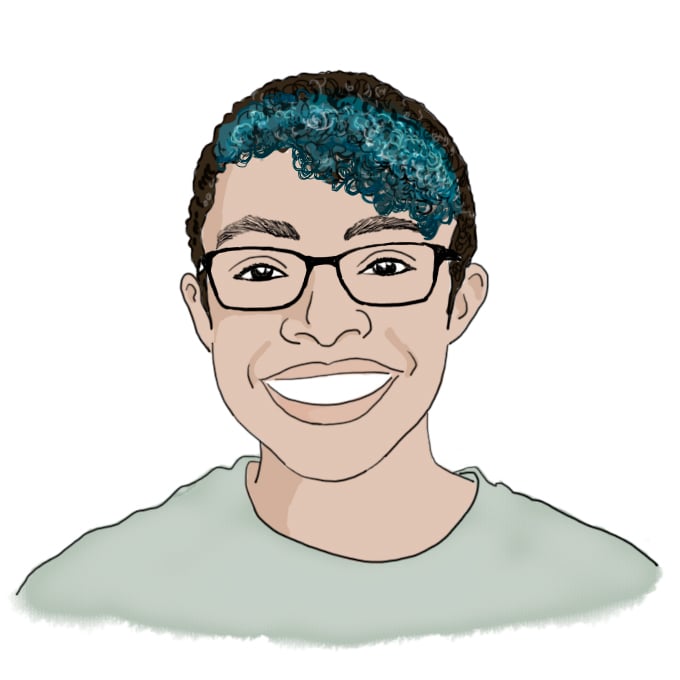
on realizations and learning by Shuli J. '22, MEng '23
in which i say a bunch of things that might seem obvious
Last semester was pretty rough, and I vowed to make this semester different. I tried to get into a fifth class and didn’t (it was too oversubscribed), so instead I’m taking four classes, of which only one is likely to be horribly difficult. I’m hoping that the lowered courseload will help, although it’s a little hard to tell, because the first week of the semester is always calmer than the ones that follow. For now at least, I’m chilling — and this chill, combined with the delightful chill of my IAP (and further combined with reflective time at the gym while I work out) has got me thinking.
I’ve come to this realization, over the past six weeks or so. I thought I always knew it, but I clearly never did: taking care of yourself and putting aside time for yourself is not just a necessary evil. It is good, and fun, and right.
I thought I believed this before. I didn’t. My brain was secretly thinking something along the lines of “oh, well, if you need time to take care of yourself, then I guess you have to do it. And each person might need to set aside different amounts of time, and that doesn’t make them better or worse as a person — but of course, it’s better to be able to set aside less time, and focus on doing instead of living.” I felt like the best way to approach life was to fill it with as many things as you could without making yourself sad. Because filling up your time is what lets you learn new skills! and try new things! and have new experiences!
And, you know, all that stuff is pretty great. But actually, there’s so much that you can gain from free time — different things, and equally valuable to those that you gain from full time.
Each of us should not fill our time as much as we can, but as much as we want to; and it is not better to fill it more, or as much as possible, but it is better exactly and only to do what makes you happier — with the knowledge that there are so many kinds of happiness, and it is nice to get to try them all. I like knowledge, and experiences, and learning new things, but none of these holds more meaning than happiness. And why maximize a proxy value for a quantity when you could maximize the quantity itself? To leave space in a schedule, to work out and think, to walk places more slowly than everyone else and stare at the sky — this is its own good thing if what it creates for me is happiness. It does not need to be stolen from other activities; it has its own intrinsic right to be alive, to take up space in my life. I want it and love it for itself, not just because it’s what lets me keep living and doing everything else.
I think this is what my parents have been trying to tell me for the past eight or so years. I think this is what some upperclassmen have been trying to tell me since CPW. I always nodded, agreed, it made sense to me. But I didn’t realize that I didn’t really believe it, because I made my life choices as if it were false. (As opposed to now that I know it for real, when I am relishing my free time, my slow moments, doing things unproductively and inefficiently…)
Thinking about the time it took me to reach this realization led me to a realization on realizations. When children learn their native language, they need, of course, to hear adults speaking to them. A child who is deprived of input won’t be able to learn. And yet, a child who is spoken to twice as much as another child will make the same kind of mistakes at about the same age, and master the same parts of language at about the same age. The input is necessary, but it’s not sufficient. What they also need is time: if a two-year-old isn’t ready to speak a certain way, you can’t make them learn it. All you can do is help them keep living, until they turn three and a lightbulb goes off in their head.
I never thought I was done growing, but I think I thought most of what was left was about acquiring knowledge & changing physically. Instead, there were so many dark lightbulbs in the back corners of my brain, waiting to light up and make me realize that something is not as I thought it was. Like a child learning a language, other people are only part of the puzzle for me; the other part is time to think and discover on my own.
And it turns out that this feeling doesn’t scare me like it used to. Freshman fall, in a blog about realizing that I didn’t know myself as well as I thought I did, I wrote “I miss being able to walk through the house of myself in pure darkness and never miss a step.” Now… I mean, sure, knowing myself well was nice. But this is also pretty cool — this idea, which perhaps should not come as the surprise that it does, that we are not fixed human beings once we graduate from high school; that there is so much left to sneak up on me, to change the way I think and who I am.
Over the past year, I’ve started to like eating new foods, trying new combinations of flavors, and doing things I’ve never done before. And in the same vein, I’m also so excited to try out these new “me”s who are coming. I haven’t met them yet. But I will.